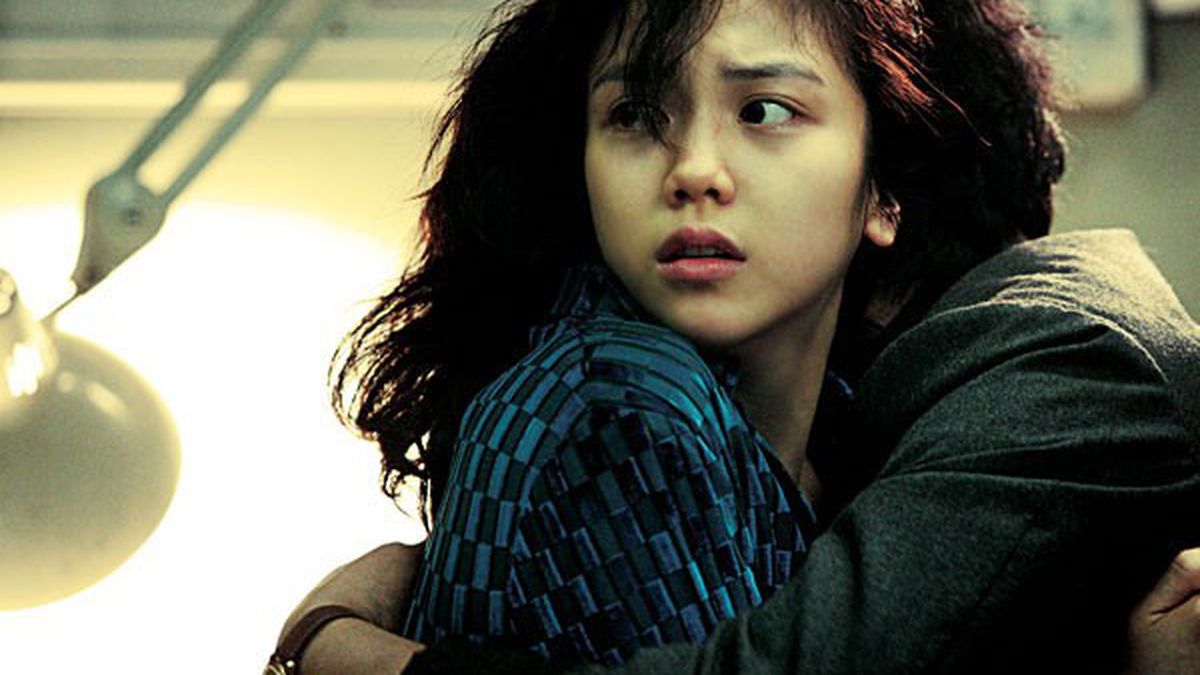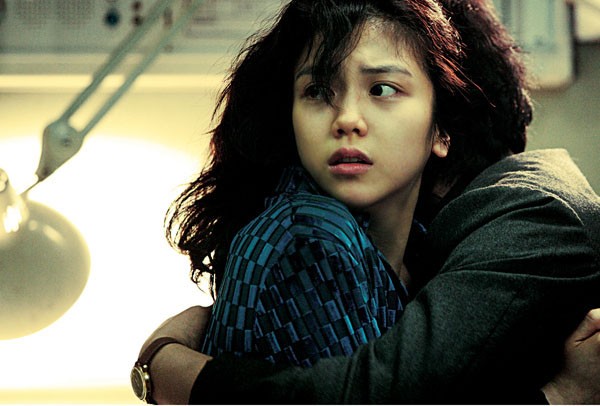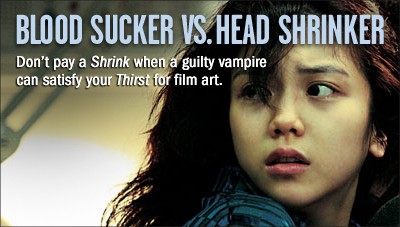Director Park Chan-wook, whose Oldboy set the international standard for stressful revenge theatrics back in 2003, is arguably the leading light of the decade-old K-horror/K-thriller invasion. Where such South Korean filmmakers as Bong Joon-ho and Ahn Byeong-ki contented themselves playing riffs on the well established monster/teenage ghost/ecological sci-fi motifs they inherited from the Japanese pacesetters of the 1990s, Park set out for new territory. His genre work combines disturbing psychological elements with Korea’s customary graphic-visual overkill. The most terrifying creatures in a Park Chan-wook film are the human beings.
With that in mind, when we discovered that Park’s latest project, Thirst (Korean title: Bakjwi), was a vampire story, we expected something extraordinary. And Thirst does not disappoint. It’s the best vampire film since Tomas Alfredson’s Let the Right One In — kiddie shows like Twilight and Blood: The Last Vampire pale (you’ll excuse the expression) in comparison.
The story begins with an emotionally fragile Roman Catholic priest named Sang-hyun (played by frequent Park collaborator Song Kang-ho), who tirelessly comforts patients in a hospital and in his spare time sorts out his tangled inner life. Caregiver Sang-hyun’s devotion to humanity leads him to volunteer as a human guinea pig at a clinic in Africa, where researchers give him a blood transfusion infected with the Emmanuel virus, a puzzling disease that mostly strikes single males. Immediately Sang-hyun develops an ugly skin rot — shades of David Cronenberg — but he returns to Korea and continues to care for his flock. They soon dub him the “Bandaged Saint.”
However, there’s another, unnoticed side effect of the virus: The priest has turned into a vampire. His selfless ministry to the poor and sick now competes with his carnal thirst for blood, and he begins making nocturnal visits to the hospital after sleeping all day in a battered wardrobe in place of the usual coffin. Drinking blood makes his boils temporarily disappear. Perhaps not coincidentally, unaccustomed sexual desire also arises in the virginal Sang-hyun — his remedy for that is to violently flog his penis.
Running alongside Sang-hyun’s agony is the pitiful plight of Tae-jun (exploitation star Kim Ok-bin), the Cinderella-like “stepdaughter” of Lady Ra (Kim Hae-sook), a mean, petty old hag who uses Tae-jun’s marriage to her cancerous, disabled son Kang-woo (Shin Ha-kyun) as an excuse to treat the young woman as a virtual slave in their household. Tae-jun’s tasks include feeding and bathing her invalid husband, occasionally masturbating him (they don’t have sex together), and, worst of all, enduring Lady Ra’s weekly mah-jongg games in the family’s tacky parlor with their hideous friends.
Sang-hyun happens to be a boyhood pal of the sickly Kang-woo, so he routinely socializes with the family. It doesn’t take the horny bloodsucking priest and the unhappy, resentful wife long to figure out they can help solve each other’s dilemmas. There’s a problem with their relationship, though — the priest cannot easily let go of his spiritual need to protect and serve other people, and Cinderella isn’t quite as docile as she first appears to be, under the thumb of the awful family.
Park, who wrote the screenplay with Chung Seo-kyung as a loose adaptation of Émile Zola’s 1867 novel Thérèse Raquin (the lover was not, alas, a vampire priest in the original version), clearly enjoys juggling complicated motivations and the old ultraviolence with mind-boggling special effects, but these days anyone can make characters crawl down walls like spiders and do a bubble-and-squeak under the rays of the sun. Thirst‘s true seductive power comes from the carefully constructed collision of two desperate people who have only their thirsts in common — his quite literally for the life-giving blood, hers for vengeance against the world.
Actors Song and Kim inhabit their roles by degrees, and their performances are the best argument yet that K-horror, at least in the hands of Park, possesses hidden dimensions of subtlety. As in Let the Right One In, the vamp saves someone from a bully, and the climactic reckoning underscores the essential inequality between the vampire and his beloved — victim and predator, servant and master. Park’s twelfth directorial effort is probably his most mature outing. It’s also one of the all-time grisliest entries in the genre, packed with shocks and depravity and thrillingly sensual sound engineering. You never heard such slurping.
While we’re on the subject of codependency, Jonas Pate’s not completely worthless drama Shrink reminds us of that notorious service station in Hollywood that used to advertise: “Free psychiatric visit with car wash.”
In fact, Shrink‘s story of a depressed LA psychiatrist (Kevin Spacey) treating a typically crazy cast of Tinseltown misfit patients — most of them connected to the movie biz — also brings to mind Thom Andersen’s Los Angeles Plays Itself. In that intelligent, organic 2003 documentary, writer-director Andersen, a CalArts film professor, convincingly complains about movies using lazy clichés to explain his hometown: Everyone there takes pills, works in the entertainment industry, lives in a Richard Neutra house on a hilltop, is flamingly neurotic, is unable to sustain a normal relationship with anyone, constantly looks in the mirror, and so on.
Shrink hits every single one of those clichés in its who-cares critique of La-La Land witch doctor Henry Carter (Spacey, drawing a paycheck) and his nutty fellow Angelenos: a fear-ridden, bullying talent agent (Dallas Roberts); the agent’s down-trodden assistant (Pell James); a fading screen actress (Saffron Burrows); an alcoholic, oversexed, aging actor (Robin Williams); a misplaced pro-bono-case teenager from South Central (Keke Palmer); an action-movie phenom from Ireland (Jack Huston); a blond up-and-coming starlet who will fuck anybody (Laura Ramsey); and, of course, the shrink’s godson, a would-be screenwriter played by actor Mark Webber — a younger, cheaper version of Sam Rockwell.
Newcomer Thomas Moffett’s screenplay, adapted from a story by Henry Rearden, doesn’t miss a speed bump. The only character with potential, and that’s extremely limited, is the weed dealer (Jesse Plemons) with his supply of “Dutch Act,” “Toasty Brunch,” and “Christmas in Vietnam” — an escapee from a Judd Apatow flick. How did they talk Gore Vidal into his cameo as a talk show host?
After discarding all the hackneyed distractions, we’re left with the realization that without Kevin Spacey, Shrink would never have been made. In a way, the film is a referendum on the state of his career. We find him in a contemplative mood, mentally adding up all the snippy, verbally sharp characters he’s played since he burst into wide recognition in The Usual Suspects. His Henry Carter in Shrink is pretty much like all the rest. That’s disappointing.













